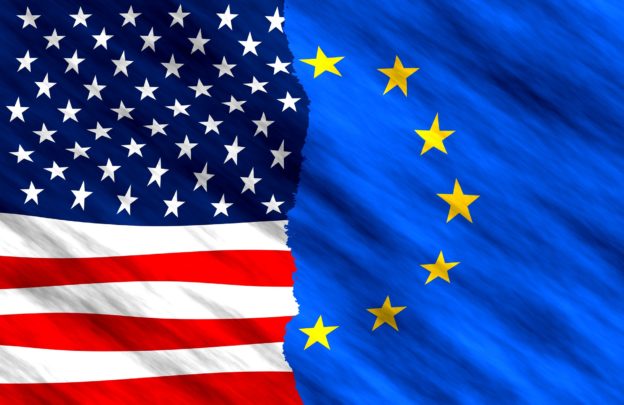On November 13, 2018, some of President Trump’s tweets were expressly targeting President Macron. The U.S. President plans to tax French wines and spirits heavily, reflecting the new GAFA[1] tax passed by Parliament on 11 July 2019. This GAFA tax is part of an ongoing negotiation process between OECD countries (on the taxation of new technology companies).
Last November, President Trump had already threatened the French wine sector with customs repercussions, denouncing the trade imbalance between the two countries on wine products. Indeed, American agricultural products are taxed at 11% in Europe, while European products in the same sector are taxed at 4.5% on American territory. Nevertheless, it must be taken into account that the direct sale of foreign alcoholic products is prohibited in the United States, forcing producers to go through a distributor and then a retailer, who make between 20 and 30% of the margin.
The taxation on French wine products is highly symbolic. In addition to a strong cultural dimension, French wines and spirits represent a very important part of the French trade balance. In 2018, more than €9 billion worth of wine products were exported world-wide, 25% of which went to the United States (€3.2 billion). Therefore, the American market is essential to the French wine sector.
The US Trade Representative’s (USTR) office considers the GAFA tax “unreasonable” in that it is aimed exclusively at American companies, and has denounced its “extraterritorial scope”. The USTR could issue new customs duties on French products after the end of the public consultation period on 26 August. The products targeted by these threats include wine, cheese and whisky, estimated at $4 billion.
Through its statements, the American administration highlights its desire to wage a trade war with the European Union, by directly attacking European cultural products. Nevertheless, President Trump’s belligerent and undiplomatic behaviour highlights his lack of knowledge of European foreign policy. Indeed, France is not in a position to set its own customs tariffs, as the European Union has exclusive competence under the European treaties.
Finally, it is important to note that this increase in taxes on French wine products should not be happening soon, since Presidents Macron and Trump agreed at the end of the G7 in Biarritz on 27 August on the application of the GAFA tax. As an agreement has been reached, no increase in US tariffs on these European products is expected to apply.
However, if such measures were finally adopted, they could be declared contrary to WTO (World Trade Organisation) law. Indeed, one of the objectives of the WTO is to lower or even eliminate customs duties. Unilateral increases in customs duty rates are prohibited. Only one of the three trade defence instruments, as exceptional measures applicable under binding conditions, is possible. Thus, unless the measures fall under the safeguard measures, which require a sudden and considerable increase in the volume of certain foreign products on US territory (which in this case seems difficult to prove), the increase in customs duties for European agricultural products is simply a protectionist measure. Such protectionist logic is recurrent from President Trump, since he vigorously combats the multilateral framework for international trade, favouring bilateral agreements.
Nevertheless, it must be noted that European agricultural products are regularly the collateral victims of American customs claims. In the event of new tensions between the EU and the United States, these products may once again be the target of the US government.
[1] Google, Amazon, Facebook, Apple
***
DS Customs & Trade team is at your disposal to provide you with any additional information.
CONTACT US :

